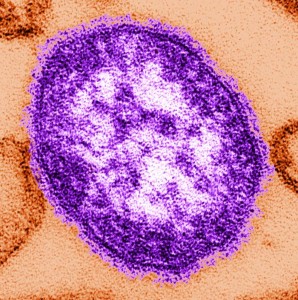In a follow-up to a report in March, London has seen over 60 cases of measles in the last two months in a period when there would usually be fewer than 10. With 48 of these cases in those aged 15 or over, Public Health England is calling on parents and young adults to consider the MMR vaccine.

The call to get vaccinated coincides with European Immunisation Week, which is run by the World Health Organisation (WHO) to raise awareness of the importance of vaccination. It also coincides with an increase in measles cases currently being seen across the rest of England.
Measles is a highly infectious viral illness that can be very unpleasant and sometimes lead to serious complications. It’s now less common in the UK because of the effective MMR vaccination programme. Although usually a mild illness in children, measles can be more severe in adults.
Vaccine uptake rates in England are currently among the highest in Europe, but an increase is still needed to reach the WHO’s 95% target for MMR vaccination in 2 year olds. The current rate in London is just over 87%.
Those who are unvaccinated, or not fully vaccinated, remain susceptible to the disease. The MMR vaccination also provides protection against two other common highly infectious diseases: mumps and rubella.
Dr Yvonne Doyle, regional director for PHE in London, said:
“We are seeing an increase in measles cases across London which could be considered an outbreak. The cases are being confirmed mainly in adolescents and News Release young adults, and it’s never too late for them to have the vaccine. Those who have not received two doses of the vaccine in the past – or who are unsure – should speak to their GP. There’s no harm in receiving an additional dose where there is any uncertainty.
“Public Health England asks that parents – and young adults – remain alert to measles. Signs to look out for can include cold-like symptoms, sore red eyes, a high temperature or a red-brown blotchy rash. Those experiencing symptoms should seek medical attention, but phone ahead before visiting GP surgeries so arrangements can be made to prevent others from being infected.
“It’s crucial pregnant women have been vaccinated with MMR as Rubella in particular can cause serious complications during pregnancy. The MMR vaccination provides you and your baby important protection and can be given before you become pregnant or after you’ve given birth. Pregnant women who are unsure if they’ve been vaccinated should check with their GPs.”
Related:


One thought on “London measles outbreak: 60 cases in two months”